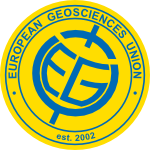-
Recent Questions
- Hello. I wanted to ask…what does paleomagnetism particularly study? :)
- Do you expected to be one of the finalists?
- Why is water vapor only in the troposphere part?
- 1.How did Earth and other planets form?-su yaşin
- Do you think the accumulation of tension can be prevented in order to reduce the intesity of earthquake? (1 Comment)
Recent Comments
- Thanks from your winner - Andi! (2 comments)
- Do you think the accumulation of tension can be prevented in order to reduce the intesity of earthquake? (1 comments)
- If there is an earthquake on Jupiter, Mars, Venus etc. will it still be called EARTHquake ? (1 comments)
- How do you measure the depth of an ocean ? (2 comments)
- What do you think of music like Ed Sheeran's songs? (1 comments)









This is a good question!
Most active volcanoes are being studied by teams of scientists all the time so that we won’t be surprised by them if / when they erupt. While we are studying the volcanoes, we can measure if there are any gases coming out, if there are any earthquakes happening, and we can even use machines to tell us if the volcano is swelling up and getting bigger! All of these things tell us what sort of eruption to expect… lots of gases, lots of earthquakes and a big fat expanding volcano are signs that you might expect a big eruption. But some volcanoes don’t follow the rules and we get caught out!
when you are studying a volcano, you should also make sure you study all the eruptions that have happened before this one. you can make maps to show how much ash came out and where it went to and you can see what chemistry and what gases the earlier eruptions had. If you understand the past, then it can help you to understand the future!
2